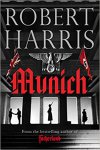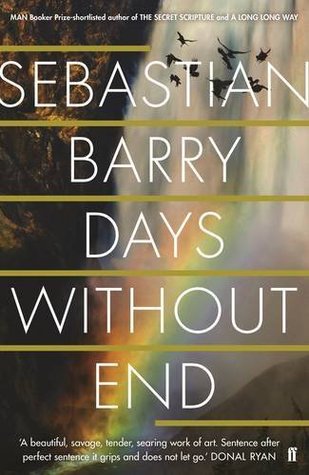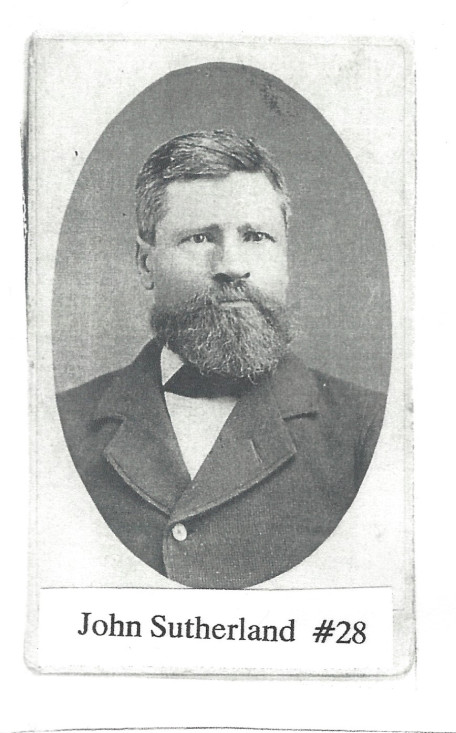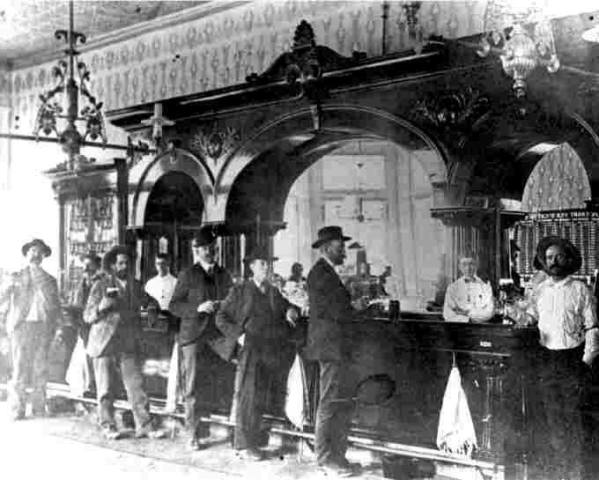I’ve done these end-of-year lists for a few years now so usual rules apply. A book doesn’t have to have been published in the last year to qualify, it just has to have been read by me in that time. The order in which books are listed is simply the order in which I read them – it’s not an order of preference.
I’ve already reviewed most of the decent non-fiction I’ve read over the course of the year – either on this blog or over at Project Breakthrough – so I’ve stuck to fiction here.
Finally, please do feel free to reciprocate with your own recommendations in the comments section below. I’m always keen to hear about good books I haven’t yet read.

A bleak, all-too-plausible dystopian novel set in a near-future USA that is plunged into full-blown depression by a further financial crisis. Towards the start of the book, in the year 2029, the US Government defaults on its debts and devalues the dollar, wiping out Americans’ savings and tipping the previously well-to-do Mandible family into a downward spiral towards pennilessness. What follows is a wonderful mix of intimate family drama and macroscopic socio-political commentary.
2. Never Let Me Go by Kazuo Ishiguro (2005).

I hadn’t read any Ishiguro until this summer, but on the strength of this book alone, I’d say he’s a deserving winner of the Nobel Prize for Literature. Never Let Me Go is a beautiful, nostalgic and deeply humane novel. If you haven’t already, just read it. I promise you won’t regret it.
3. Hot Milk by Deborah Levy (2016).

A strangely mesmerising short novel about a 25-year-old Anglo-Greek girl, Sofia, who is, in effect, a full-time carer to her difficult, paraplegic mother. Taken to Southern Spain by the quest to cure her mother’s unexplained disability, Sofia finds herself on an unwitting journey of self-discovery. Levy’s prose is razor sharp and elegant, her characters are engagingly mysterious and the story races along like a well-paced thriller.
4. A Legacy of Spies by John Le Carré (2017).

Regular readers of this blog will know that I am something of a Le Carré obsessive. And so, the news that not only did he have a new novel coming out, but that he would be returning in it to some of his most-loved Cold War era characters – George Smiley et al – for the first time since The Secret Pilgrim (which was published in 1991), had me gibbering with excitement for months before the book actually came out. And I’m pleased to report that, at 86, the master has not lost his touch. Katy and I went to see him speak at the Royal Festival Hall in September: for 70 minutes he had 2,500 people absolutely transfixed as he wove together vivid reminiscences from his own time as a spook in the late 1950s/early 1960s with readings from his novels.
A Legacy of Spies is a prequel to The Spy Who Came in from the Cold, the 1963 bestseller that made Le Carré’s name. Although there’s a contemporary strand to the narrative, the action mostly takes place in that earlier period – a first for Le Carré, who has always, until now, written about the world of today, rather than the world of yesterday. Even so, there’s a political edge to it. When at last Peter Guillam tracks down the great spymaster George Smiley at the end of the book, Smiley offers this reflection on what it was all for:
‘For world peace, whatever that is? Yes, yes, of course. There will be no war, but in the struggle for peace not a stone will be left standing, as our Russian friends used to say.’ He fell quiet, only to rally more vigorously: ‘Or was it all in the great name of capitalism? God forbid. Christendom? God forbid again.’
A sip of wine, a smile of puzzlement, directed not at me, but at himself.
‘So was it all for England, then?’ he resumed. ‘There was a time, of course there was. But whose England? Which England? England all alone, a citizen of nowhere? I’m a European, Peter. If I had a mission – if I was ever aware of one beyond our business with the enemy, it was to Europe. If I was heartless, I was heartless for Europe. If I had an unattainable ideal, it was of leading Europe out of her darkness towards a new age of reason. I have it still.’
So there you have it: George Smiley is a remoaner.
5. Munich by Robert Harris (2017).

Harris is to historical fiction what Le Carré is to espionage thrillers: both have taken genres that some literati would traditionally have sniffed at and elevated them to the level of great literature. Following on from his brilliant 2013 historical novel An Officer and a Spy, which told the story of the Dreyfus Affair, Harris turns his attention to the much-maligned figure of Neville Chamberlain and the infamous 1938 Munich peace conference. Harris offers a sympathetic account of Chamberlain’s actions: having lived through one World War, he was determined to do all he could to avoid a second, even if it cost him his reputation. Plus he was strategically hamstrung by Britain’s total military unpreparedness in the summer of 1938.
The story is told from the perspective of one of Chamberlain’s private secretaries, Hugh Legat, and a young German diplomat, Paul Hartmann, who is part of a small, covert gang of plotters seeking to overthrow Hitler. The two happen also to be old friends. Legat and Hartmann are both fictional, but almost everyone else in the book really was at the Munich Peace Conference. This deft interweaving of fact and fiction is a joy to read and, as usual with Harris, the whole thing is brilliantly paced.
6. Archangel by Robert Harris (1998).

I know, not terribly imaginative to have two books by the same author on my list, but what the heck. Archangel is a flawlessly executed thriller set in then-contemporary post-Soviet Russia. The protagonist, a slightly past-it British historian, Fluke Kelso, gets a tip-off about a set of secret papers that belonged to Stalin. This puts him on a hair-raising journey through a Russia still teeming with loyal Stalinists.
7. City of Secrets by Stewart O’Nan (2016).

Another exquisitely crafted thriller, this time set in post-war Jerusalem. The protagonist, Brand, is a Latvian Jew whose entire family has been killed in the Holocaust. He’s an illegal immigrant in what was then still British Mandate Palestine, who gets inducted into the Zionist underground. Initially he joins a Haganah cell – in Zionist underground terms, Haganah was at the moderate end of the spectrum. But when Haganah joins forces with the more militant Irgun and Stern Gang, Brand finds himself embroiled in a series of minor terrorist operations – blowing up train tracks, power stations and the like. He falls in love with Eva, another member of his cell, and they enjoy a melancholy affair. Once again, fact and fiction are deftly interwoven: the climax of the novel is the bombing of the King David Hotel in July 1946 by Irgun terrorists, which really did happen.
8. Dunbar by Edward St Aubyn (2017).

A re-telling of Shakespeare’s King Lear, with a Rupert Murdoch-esque media mogul – Henry Dunbar – as the main character, who is elbowed aside by his conniving daughters, Abby and Megan. St Aubyn, who is best known for his series of semi-autobiographical Patrick Melrose novels, which feature both child abuse (Patrick is raped by his villainous father as a boy) and drug abuse (he then becomes a heroin addict in his early twenties), can conjure pure evil and out-of-control madness on the page like no other writer I’ve ever come across. That makes him the perfect person to do a modern re-write of Lear. What’s more, his prose is stunningly good – refined, witty and full of arresting metaphors. An example:
‘Dunbar was the man who placed the wafer on their outstretched tongues, transubstantiating the corrosive passivity of fear and envy into the dynamic single-mindedness of hatred.’
That’s a good line, but it pales in comparison to the brilliance of this next sentence, which I think may be my favourite line in any book I’ve read this year. It’s an explanation of how one of St Aubyn’s peripheral characters (the deceased husband of Dunbar’s daughter, Megan) acquired the nickname ‘Evil Fuck’:
‘It was hard to point to any deal or innovation that justified the title he grew to cherish: his exploitation of barely legal tax loopholes, his creation of catastrophic debt, using ever more intricate and deceptive financial instruments, his preparedness to rip apart old and successful companies, on which whole communities and tens of thousands of families depended, in order to make a few investors even more disruptively rich, were in themselves no more surprising on Wall Street than finding bread in a bakery, but the scale of his operations, the extent of his duplicity, and the intensity of his sarcasm and triumphalism meant that, like a runner who still has the reserves to sprint at the end of a marathon, he broke away from the bobbing mass of evil fucks in his generation and crossed the finishing line ahead of the competition.’
Banker bashing doesn’t get any classier than that. Hats off to Mr St Aubyn.
Advertisements Share this:





